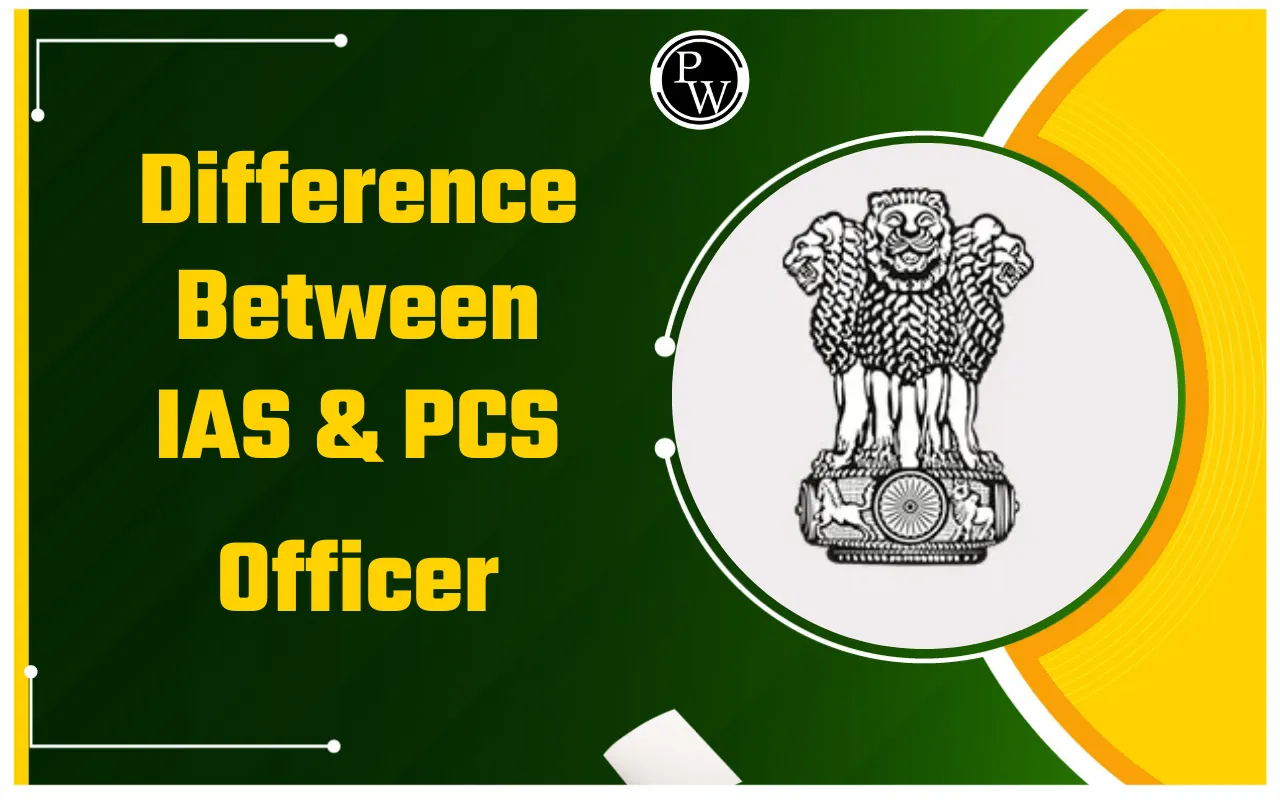
GI Tags in India: Geographical Indications (GI) is an essential aspect of intellectual property rights that offer legal protection to products with a unique geographical origin. These tags exemplify the product's quality and uniqueness and play a crucial role in preserving traditional knowledge and promoting local economies.
Recently, Tamil Nadu has expanded its Geographical Indication (GI) portfolio with five newly certified products - Woraiyur cotton sarees, Thooyamalli rice, Ambasamudram Choppu Samaan toys, Namakkal stoneware, and Kavindapadi country sugar, highlighting how GI tags safeguard regional heritage and livelihoods. This guidepost explores the concept of GI Tags in India, their benefits, history, significance, and their implications for various stakeholders while addressing key questions like "What is the GI tag", "GI tag full form", and "Who gives the GI tag in India".
What is the GI Tag?
The GI tag full form stands for Geographical Indication is a sign used on products that have a specific geographical origin and contain qualities, reputation, or characteristics inherent to that location. As per the TRIPS (Trade-Related Aspects of Intellectual Property Rights) Agreement , GIs are covered under intellectual property rights (IPR). In India, the GI tag is governed by the Geographical Indications of Goods (Registration & Protection) Act, 1999 , which came into existence on 15th September 2003.Key Features of GI Tags in India
- Certification of Origin : Ensures the product originates from a specific region.
- Quality Assurance : Reflects traditional knowledge, specific qualities, or production methods.
- Protection from Misuse : Prevents unauthorized usage of the product’s name.
History of GI Tags in India
The journey of GI tags in India began with the enactment of the Geographical Indications of Goods (Registration and Protection) Act, 1999. This legislation was passed by the Indian Parliament in December 1999 and aimed to provide full protection to products with unique geographical origins. It came into force on 15 September 2003, aligning India with the standards outlined in the TRIPS Agreement under the World Trade Organization (WTO). The TRIPS Agreement, specifically Part II, Section 3, mandates all WTO members to provide safety standards for GI products. The Controller General of Patents, Designs, and Trademarks administers the act and serves as India's Registrar of GI tags.Who Gives the GI Tag in India?
In India, GI tags are awarded by the Geographical Indications Registry , which operates under the Department for Promotion of Industry and Internal Trade (DPIIT), Ministry of Commerce and Industry. The GI tag in India is granted as per the Geographical Indications of Goods (Registration and Protection) Act, 1999, which came into effect in 2003.Total GI Tags in India and the Leading State
As of now, there are approximately 650+ total GI tags in India encompassing a variety of agricultural, handicraft, textile, and food products. Tamil Nadu is India's highest GI tag state , with products like Kanchipuram Silk, Madurai Jasmine, and Tanjore Paintings.First GI Tag in India
The first GI tag in India was awarded in 2004-05 to Darjeeling Tea , famous for its distinct aroma and flavour. Since then, the scope of GI tags has expanded to include agricultural products, natural items, textiles, handicrafts, and foodstuffs. The registration is valid for ten years and can be renewed subsequently.G.I. Tagged Products
India's GI-tagged products represent its cultural and geographical diversity which ranges across multiple categories:- Agricultural Products : Alphonso Mangoes, Basmati Rice, Nagpur Oranges.
- Natural Products : Kashmir Saffron, Muga Silk of Assam.
- Handicrafts : Mysore Silk, Banarasi Brocades and Sarees, Madhubani Paintings.
- Textiles : Kanjeevaram Sarees, Chanderi Fabrics, Sambalpuri Sarees.
- Food Items : Tirupati Laddu, Hyderabadi Haleem, Bikaneri Bhujia.
| G.I. Tagged Products | |
| State | Geographical Indications |
| Andhra Pradesh | Uppada Jamdani Sarees, Venkatagiri Sarees, Mangalagiri Sarees And Fabrics, Dharmavaram Handloom Pattu Sarees And Paavadas |
| Assam | Muga Silk |
| Bihar | Bhagalpur Silk |
| Chhattisgarh | Champa Silk Saree And Fabrics |
| Gujarat | Tangaliya Shawl, Kachchh Shawls, Patan Patola, Rajkot Patola |
| Himachal Pradesh | Kullu Shawl, Kinnauri Shawl |
| Jammu & Kashmir | Kashmir Pashmina, Kani Shawl |
| Karnataka | Navalgund Durries, Ilkal Sarees, Molakalmuru Sarees, Udupi Sarees, Mysore Silk, Guledgudd Khana |
| Kerala | Cannanore Home Furnishings, Balaramapuram Sarees And Fine Cotton Fabrics, Kasaragod Sarees, Kuthampully Sarees, Chendamangalam Dhoties & Set Mundu, Kuthampully Dhoties & Set Mundu |
| Madhya Pradesh | Chanderi Sarees, Maheshwar Sarees & Fabrics |
| Maharashtra | Solapur Chaddar, Paithani Sarees And Fabrics, Solapur Terry Towel, Karvath Kati Tussar Sarees And Fabrics |
| Manipur | Shaphee Lanphee, Wangkhei Phee, Moirang Phee |
| Odisha | Kotpad Handloom Fabric, Orissa Ikat, Khandua Saree And Fabrics, Gopalpur Tussar Fabrics, Dhalapathar Parda & Fabrics, Sambalpuri Bandha Saree & Fabrics, Bomkai Saree & Fabrics, Habaspuri Saree & Fabrics, Berhampur Patta (Phoda Kumbha) Saree & Joda |
| Rajasthan | Kota Doria |
| Tamil Nadu | Kancheepuram Silk, Bhavani Jamakkalam, Madurai Sungudi, Arani Silk, Kovai Kora Cotton Sarees, Salem Silk (Salem Venpattu), Salem Fabric, Woraiyur cotton sarees, Thooyamalli rice, Ambasamudram Choppu Samaan toys, Namakkal stoneware, and Kavindapadi country sugar |
| Telangana | Pochampally Ikat, Gadwal Sarees, Siddipet Gollabama, Narayanpet Handloom Sarees, Warangal Durries |
| Uttar Pradesh | Agra Durrie, Banaras Brocades And Sarees, Mirzapur Handmade Dari |
| West Bengal | Santipore Saree, Baluchari Saree, Dhaniakhali Saree |
| Nagaland | Chakhesang Shawls |
|
Details of GI Registered Handloom Products Logos |
|||
| 1 | Mysore Silk (Logo) | Handloom | Karnataka |
| 2 | Muga Silk of Assam (Logo) | Handloom | Assam |
| 3 | Kullu Shawl (Logo) | Handloom | Himachal Pradesh |
| 4 | Navalgund Durries (Logo) | Handloom | Karnataka |
| 5 | Kota Doria (Logo) | Handloom | Rajasthan |
| 6 | Banaras Brocades and Sarees (Logo) | Handloom | Uttar Pradesh |
List of GI Tags in India
The list of GI tags in India is extensive, showcasing the richness of the country’s cultural and natural heritage. This list highlights GI-registered handloom products, reflecting the rich cultural and artisanal heritage of various states across the country.| State | Geographical Indications |
| Andhra Pradesh | Guntur Sannam Chilli, Tirupathi Laddu, Bandar Laddu, Atreyapuram Pootharekulu, Srikalahasthi Kalamkari, Kondapalli Bommalu, Budithi Bell & Brass Metal Craft, Machilipatnam Kalamkari, Andhra Pradesh Leather Puppetry, Uppada Jamdani Sarees, Venkatagiri Sarees, Mangalagiri Sarees And Fabrics, Bobbili Veena, Dharmavaram Handloom Pattu Sarees And Paavadas, Durgi Stone Carvings, Etikoppaka Toys, Udayagiri Wooden Cutlery, Allagadda Stone Carving, Narasapur Crochet Lace Products |
| Arunachal Pradesh | Arunachal Orange, Arunachal Pradesh Khaw Tai (Khamti Rice), Arunachal Pradesh Adi Kekir (Ginger), Arunachal Pradesh Angnyat Millet, Arunachal Pradesh Yak Churpi, Idu Mishmi Textiles, Arunachal Pradesh Tangsa Textile Product, Arunachal Pradesh Handmade Car, Arunachal Pradesh Wancho Wooden Craft, Arunachal Pradesh Apatani Textile, Arunachal Pradesh Monpa Textile, Arunachal Pradesh Nyishi Textile, Arunachal Pradesh Monpa Handmade Paper, Arunachal Pradesh Adi Textile, Arunachal Pradesh Galo Textile, Arunachal Pradesh Adi Apong, Arunachal Pradesh Dao (Sword), Arunachal Pradesh Marua Apo (Millet Beverage), Arunachal Pradesh Tai Khamti Textile |
| Assam | Assam (Orthodox), Assam Karbi Anglong Ginger, Tezpur Litchi, Joha Rice of Assam, Boka Chaul, Chokuwa Rice of Assam, Kaji Nemu, Judima, Muga Silk of Assam, Gamosa of Assam, Majuli Mask of Assam, Assam Majuli Manuscript Painting, Bodo Dokhona, Bodo Eri Silk, Bodo Jwmgra, Bodo Gamsa, Bodo Thorkha, Bodo Kham, Bodo Serja, Assam Jaapi, Assam Asharikandi Terracotta Craft, Assam Bihu Dhol, Assam Pani Meteka Craft, Sarthebari Metal Craft |
| Bihar | Bhagalpuri Zardalu, Shahi Litchi of Bihar, Katarni Rice, Magahi Paan, Mithila Makhana, Marcha Rice, Silao Khaja, Madhubani Painting, Applique (Khatwa) Work of Bihar, Sujini Embroidery Work of Bihar, Sikki Grass Products of Bihar, Bhagalpur Silk, Manjusha Art |
| Chhattisgarh | Jeeraphool, Nagri Dubraj, Bastar Iron Craft, Bastar Dhokra, Bastar Wooden Craft, Champa Silk Saree And Fabrics |
| Goa | Khola Chilli, Harmal Chilli, Myndoli Banana, Goa Cashew, Agassaim Brinjal, Sat Shirancho Bhendo, Goa Mankurad Mango, Feni, Goan Khaje, Goan Bebinca |
| Gujarat | Gir Kesar Mango, Bhalia Wheat, Kachchhi Kharek, Sankheda Furniture, Agates of Cambay, Kutch Embroidery, Tangaliya Shawl, Surat Zari Craft, Kachchh Shawls, Jamnagar Bandhani, Patan Patola, Rajkot Patola, Pethapur Printing Blocks, Pithora, Mata ni Pachhedi, Kutch Rogan Craft, Kutch Bandhani, Gharchola Craft of Gujarat, Gujarat Suf Embroidery, Ahmedabad Sodagari Block Print, Surat Sadeli Craft, Bharuch Sujani Weaving, Kutch Ajrakh, Ambaji White Marble |
| Himachal Pradesh | Kangra Tea, Himachali Kala Zeera, Kullu Shawl, Chamba Rumal, Kinnauri Shawl, Kangra Paintings, Chamba Chappal, Lahauli Knitted Socks & Gloves, Himachali Chulli Oil |
| Jammu & Kashmir | Kashmir Saffron, Mushqbudji Rice, Bhaderwah Rajmash, Ramban Anardana, Kashmir Pashmina, Kashmir Sozani Craft, Kani Shawl, Kashmir Paper Machie, Kashmir Walnut Wood Carving, Khatamband, Kashmiri Hand Knotted Carpet, Basohli Painting, Rajouri Chikri Wood Craft, Basohli Pashmina Woolen Products, Ramban Sulai Honey, Udhampur Kaladi |
| Karnataka | Coorg Orange, Mysore Betel Leaf, Nanjanagud Banana, Mysore Malligae, Udupi Malligae, Hadagali Malligae, Coorg Green Cardamom, Byadagi Chilli, Devanahalli Pomello, Appemidi Mango, Kamalapur Red Banana, Udupi Mattu Gulla Brinjal, Bangalore Blue Grapes, Bangalore Rose Onion, Sirsi Supari, Gulbarga Tur Dal, Coorg Arabica Coffee, Chikmagalur Arabica Coffee, Bababudangiris Arabica Coffee, Dharwad Pedha, Mysore Silk, Bidriware, Channapatna Toys And Dolls, Mysore Rosewood Inlay, Kasuti Embroidery, Mysore Traditional Paintings, Ganjifa Cards of Mysore, Navalgund Durries, Karnataka Bronzeware, Ilkal Sarees, Molakalmuru Sarees, Sandur Lambani Embroidery, Guledgudd Khana, Kinhal Toys, Udupi Sarees |
| Kerala | Navara Rice, Palakkadan Matta Rice, Pokkali Rice, Vazhakulam Pineapple, Central Travancore Jaggery, Wayanad Jeerakasala Rice, Wayanad Gandhakasala Rice, Kaipad Rice, Chengalikodan Nendran Banana, Nilambur Teak, Wayanaad Robusta Coffee, Marayoor Jaggery, Tirur Betel Leaf, Attappady Aattukombu Avara, Attappady Thuvara, Onattukara Ellu, Kanthalloor Vattavada Veluthulli, Kodungallur Pottuvellari, Aranmula Kannadi, Payyannur Pavithra Ring, Alleppey Coir, Brass Broidered Coconut Shell Crafts of Kerala, Screw Pine Craft of Kerala, Maddalam of Palakkad, Cannanore Home Furnishings, Balaramapuram Sarees And Fine Cotton Fabrics, Kasaragod Sarees, Kuthampully Sarees, Chendamangalam Dhoties & Set Mundu, Kuthampully Dhoties & Set Mundu |
| Madhya Pradesh | Ratlami Sev, Morena Gajak, Balaghat Chinnor, Sharbati Gehu, Rewa Sunderja Mango, Gond Painting, Bagh Prints, Maheshwar Sarees and Fabrics, Jhabua Kadaknath Chicken |
| Maharashtra | Alphonso, Mahabaleshwar Strawberry, Nashik Grapes, Solapur Chaddar, Kolhapuri Chappal, Paithani Sarees, Puneri Pagadi, Warli Painting |
| Odisha | Kotpad Handloom, Odisha Ikat, Pipili Applique, Konark Stone Carving, Odisha Pattachitra, Sambalpuri Sarees |
| Rajasthan | Kota Doria, Blue Pottery of Jaipur, Molela Clay Work, Sanganeri Hand Block, Bagru Hand Block |
| Tamil Nadu | Kanchipuram Silk, Bhavani Jamakkalam, Madurai Sungudi, Arani Silk, Salem Fabric, Woraiyur cotton sarees, Thooyamalli rice, Ambasamudram Choppu Samaan toys, Namakkal stoneware, and Kavindapadi country sugar |
| Telangana | Pochampally Ikat, Gadwal Sarees, Siddipet Gollabama, Narayanpet Handlooms, Warangal Durries |
| Uttar Pradesh | Banarasi Sarees, Lucknow Chikan, Moradabad Metal Craft, Kannauj Perfume, Agra Durries |
| West Bengal | Darjeeling Tea, Nakshi Kantha, Baluchari Sarees, Shantiniketan Leather, Bankura Terracotta |
List of Geographical Indications in India
Benefits of GI Tags in India
The benefits of GI tags are multifaceted, extending to producers, consumers, and the economy:- Economic Advantage : GI tags enhance the market value of products, allowing producers to command premium prices.
- Cultural Preservation : GI tags safeguard a region's traditional knowledge and cultural practices.
- Quality Assurance : Products with GI tags assure consumers of authenticity and quality.
- Export Promotion : GI-tagged products often find a prominent place in global markets, boosting exports.
- Rural Development : Recognition of regional products contributes to the socio-economic development of rural areas.
Challenges in Managing GI Tags in India
Despite the benefits, managing GI tags in India comes with challenges:- Lack of Awareness : Many communities are still unaware of the GI tag and its advantages.
- Counterfeiting : Imitation products can undermine the credibility of GI-tagged goods.
- Limited Market Access : Small producers often face challenges in accessing broader markets.
How to Obtain a GI Tag in India
The application must be filed with the Geographical Indications Registry to acquire a GI tag in India. The process involves providing detailed information about the product, its unique characteristics, and its geographical origin. Once the application is scrutinized and approved, the product receives the GI tag, ensuring its legal protection. Here is the step-by-step process:- Eligibility Check : Products must have unique qualities attributable to their geographical origin.
- Application Filing : Applications are submitted to the GI Registry in Chennai.
- Verification and Approval : Upon scrutiny, the GI tag is granted for ten years, with an option for renewal.
UPSC Relevance to GI Tags in India
Geographical Indications (GI) tags are significant in the UPSC exams, especially in subjects like Geography, Indian Politics, and Environment.- Understanding GI tags helps in understanding India's agricultural and industrial heritage, contributing to questions related to intellectual property rights, cultural diversity, and sustainable development.
- GI tags also play a key role in international trade and economic policy, which are often explored in the UPSC syllabus.
| Previous Year Question on GI Tags in India |
| Click Here |
Conclusion
The concept of GI Tags in India is a powerful tool for protecting and promoting the unique heritage of Indian products. From the iconic Darjeeling Tea to the exquisite Kanchipuram Silk, these tags protect the authenticity of goods and contribute to the socio-economic development of the regions they represent.
Ready to take the next step in your UPSC journey? Explore PW courses today!
| UPSC Related Articles | ||
| UPSC Prelims Questions | NCERT for UPSC Exam 2025 | UPSC Mains Admit Card |
| UPSC Mains Exam Pattern | UPSC Scholarship Test | UPSC Result |
<span style=
Q1. What is the GI Tag in India?
Q2. Which was the first GI tag in India?
Q3. Who gives the GI tag in India?
Q4. How many GI tags are there in India?
Q.5 Which state has the highest GI tags in India?
Q.6 What are the benefits of GI tags?







